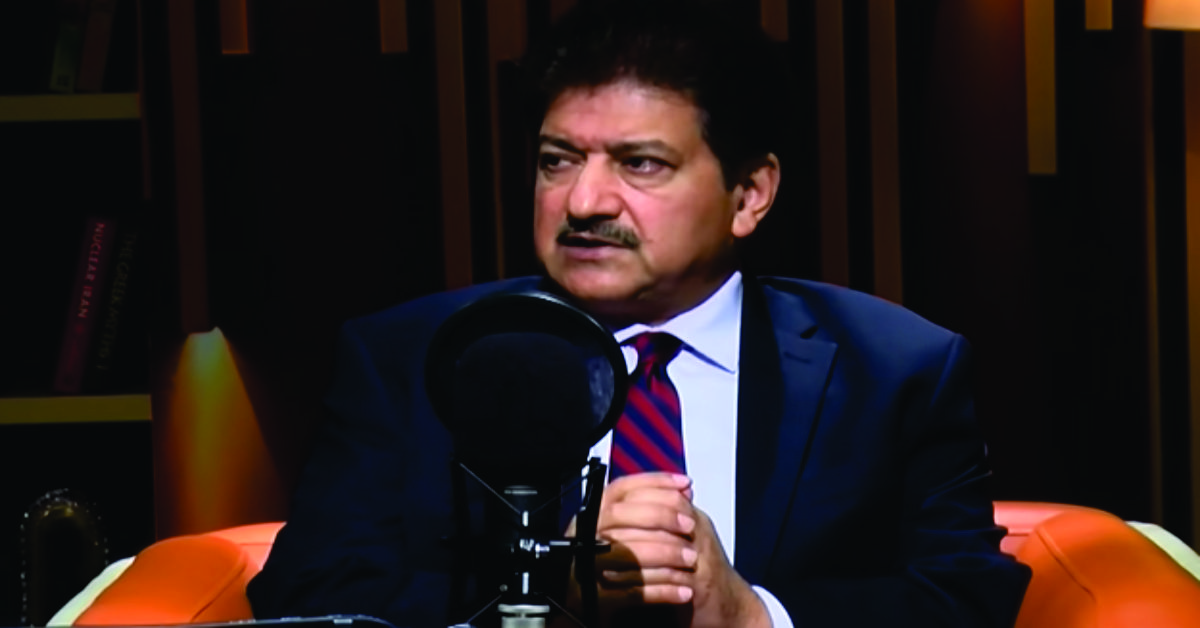Why is Pakistan not taking Oil and Gas from Iran?

Columnist: Hamid Mir
Do you know which countries possess the largest reserves of natural gas in the world? The top three are Russia, Iran, and Qatar. And which countries have the largest oil reserves? Venezuela, Saudi Arabia, and Canada top the list, followed by Iran at fourth and Iraq at fifth.
Pakistan’s neighboring country, Iran, is rich in both oil and gas. The two countries share a 900-kilometer-long border. Despite being a nuclear power, Pakistan has long suffered from a shortage of gas and oil, which remains a major hurdle in the path of economic development.
Benazir Bhutto and Iran-Pakistan Gas pipeline Project
To overcome this obstacle, Benazir Bhutto began negotiations in 1995 to buy cheap gas from Iran. She signed a Memorandum of Understanding with Iranian President Hashemi Rafsanjani to launch the Iran-Pakistan Gas Pipeline Project.
In 1996, her government was dismissed, and the project was shelved. In 2008, when Asif Ali Zardari became President and Yousaf Raza Gillani became Prime Minister, the project was revived.
The PPP government decided to purchase cheap gas and oil from Iran while also trying to maintain good relations with the United States — the biggest obstacle being U.S. sanctions against Iran.
Asif Ali Zardari Mediation between Iran and Saudi Arabia
Soon, President Zardari realized that not only the U.S. but also Saudi Arabia had reservations about Pakistan purchasing gas from Iran. And since Pakistan could not afford to upset Saudi Arabia, Zardari, with China’s support, initiated efforts to mediate between Iran and Saudi Arabia.
In June 2011, Zardari visited Iran and held a long one-on-one meeting with Iran’s Supreme Leader Ayatollah Ali Khamenei. Within a month, in July 2011, he visited Iran again and held another extensive meeting with Khamenei. Meanwhile, China launched backchannel diplomacy with Saudi Arabia. Once the deadlock between Iran and Saudi Arabia was resolved, Zardari and Iranian President Ahmadinejad jointly inaugurated the Pakistan-Iran Gas Pipeline Project in 2013.
Nawaz Sharif could not Face Pressure
Soon after, Nawaz Sharif became Prime Minister and Zardari’s term ended. Nawaz Sharif came under heavy pressure to withdraw from the pipeline project. He chose silence and instead started buying gas from Qatar.
In 2018, Imran Khan became Prime Minister. He too was advised to abandon the idea of trading with Iran — but he refused to terminate the project. It is worth pondering: since 2009, every Pakistani government has been told not to purchase gas from Iran — yet none canceled the project.
Why?
First, because any government that raises fuel prices faces the wrath of the public. No political government can shut down a project beneficial to the people merely to appease the U.S.
Second, when Pakistan and Iran launched the gas pipeline project, an international arbitration court under French law was assigned to mediate any disputes. If Pakistan withdrew from the agreement, it would be liable to pay at least $18 billion in penalties.
The agreement was first reached in 1995. Work formally began in 2009, was inaugurated in 2013, and was due for completion by 2024.
By 2022, when Shehbaz Sharif became Prime Minister, the country was in a severe economic crisis, on the verge of default. Pakistan survived by taking loans from China and Saudi Arabia.
Amid efforts to strike a deal with the IMF, offending the United States was not an option, so the gas pipeline project went silent again.
But in March 2023, a major breakthrough occurred. Iran and Saudi Arabia reconciled, and China mediated their peace. Few remembered that efforts to mend ties between Iran and Saudi Arabia were first initiated by Pakistan.
Following the meeting between the Iranian and Saudi foreign ministers in Beijing, in May 2023, Prime Minister Shehbaz Sharif signed an agreement with Iran to buy cheap electricity. Hopes rose that the gas project would finally be completed.
But the U.S. made it clear: buying gas from Iran would trigger economic sanctions on Pakistan.
Once again, due to U.S. threats, the project was put on hold. Meanwhile, Iran — having completed its portion of the pipeline — grew impatient. According to the agreement, if Pakistan did not finish its part by March 2024, Iran would issue a legal notice. And if it failed to do so by September 2024, it would lose the right to initiate legal action.
Iran served the legal notice, and Indian and U.S. media erupted with headlines: “Pakistan to pay Iran $18 billion.” Pakistan began preparing to face legal proceedings in the French court.
Israel Iran War and the Role of Pakistan
Then, unexpectedly, Israel attacked Iran. Contrary to expectations, Pakistan and Saudi Arabia extended full diplomatic support to Iran. This marked a thaw in Pakistan-Iran relations.
A few days ago, at a meeting in Azerbaijan, Iran’s President Dr. Masoud Pezeshkian informed Prime Minister Shehbaz Sharif that Ayatollah Khamenei ordered a halt to further legal action on the gas pipeline project and instead directed the matter to be resolved through negotiations.
PM Shehbaz Sharif immediately formed a committee led by Deputy PM Ishaq Dar to resolve the issue promptly. But here’s the question:
If negotiations fail and the matter goes to the French court, and the verdict goes against Pakistan, how will the country pay the $18 billion penalty? Will the U.S. pay it for us?
This government keeps raising petrol and gas prices every couple of months and faces public backlash each time. So why not buy cheap gas, petrol, and electricity from Iran and give relief to the people? As for fears of U.S. sanctions — the real decision is this:
Will we stand for our self-respect, or pay $18 billion in penalties?
Courtesy: Daily Jang
